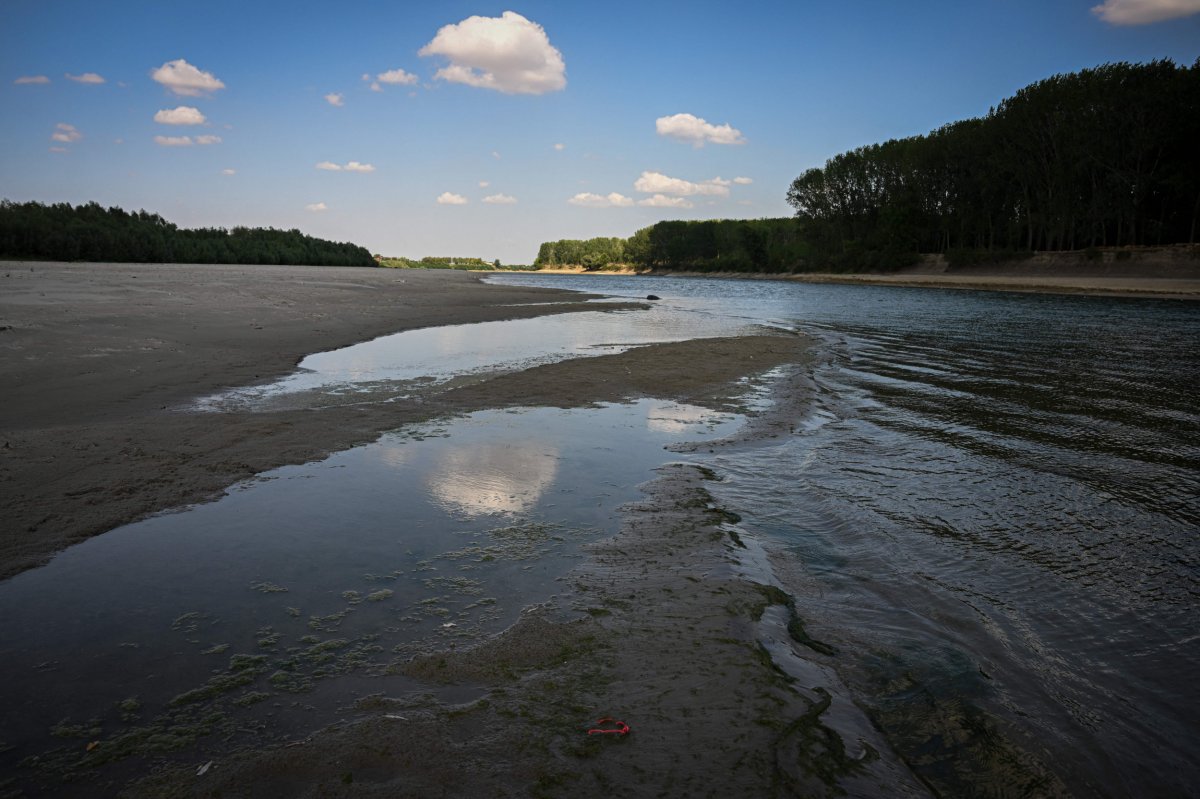Intense droughts in Europe have brought the Danube River to its lowest water level in over a century, leaving dozens of sunken warships from World War II exposed for the first time, Reuters reported Friday.
Across the riverbed near Serbia's river port town of Prahovo, more than 20 German ships, some of them containing ammunition and explosives, are now visible to the surface.
"The German flotilla has left behind a big ecological disaster that threatens us, people of Prahovo," Velimir Trajilovic, a 74-year-old pensioner from Prahovo who wrote a book about the German ships said, according to Reuters.
While some of the hulks still lie submerged in sand banks, some show exposed turrets, command bridges and broken masts as the ships have narrowed the river's waterways, which are still used for transportation and fishing.

In March, Serbian authorities deployed an operation that cost roughly $30 million in order to salvage the ammo and explosives that are still onboard some of the ships. Reuters reported that in 1944, Nazi Germany's Black Sea fleet used the Danube for travel as they retreated from advancing Soviet forces.
Droughts, brought on by prolonged periods of low rainfall and compounded by excessive heat, have been ripping through Europe and North America recently, causing low water levels and wildfires as scientists have blamed the events on global warming.
Because of the drought, Serbian authorities have had to resort to dredging parts of the river in order to keep the navigation lanes working.
"We have deployed almost [our] entire [dredging] capacity...We are struggling to keep out waterways navigable along their full length," Veljko Kovacevic, Assistant Minister for Infrastructure and Transportation, told Reuters on Wednesday.
Other bodies of water are drying up in drought-like conditions around the globe, exposing more than just historic war ships beneath the surface. In Lake Mead, the United States' largest reservoir, at least five sets of human remains have been found as water levels drop to dead-pool levels. The first set of remains were discovered in May, found concealed within a barrel that police believe is likely the victim of a mob-related shooting.
Police are still investigating the circumstances surrounding each one.
Lake Powell, another reservoir further up the Colorado River, is also experiencing massive water losses, with some experts saying that it could dry up altogether in the face of ongoing droughts in the western part of the country.
This Statista chart shows the share of the continental United States' area under different levels of drought between 2018 and 2022.
"The worsening drought crisis impacting the Colorado River Basin is driven by the effects of climate change, including extreme heat and low precipitation," said Bureau of Reclamation Deputy Secretary Tommy Beaudreau in a press release on Tuesday.
Newsweek reached out to The National World War II Museum for comment.
Uncommon Knowledge
Newsweek is committed to challenging conventional wisdom and finding connections in the search for common ground.
Newsweek is committed to challenging conventional wisdom and finding connections in the search for common ground.
About the writer
Emma Mayer is a Newsweek Culture Writer based in Wyoming. Her focus is reporting on celebrities, books, movies, and music. ... Read more
To read how Newsweek uses AI as a newsroom tool, Click here.






